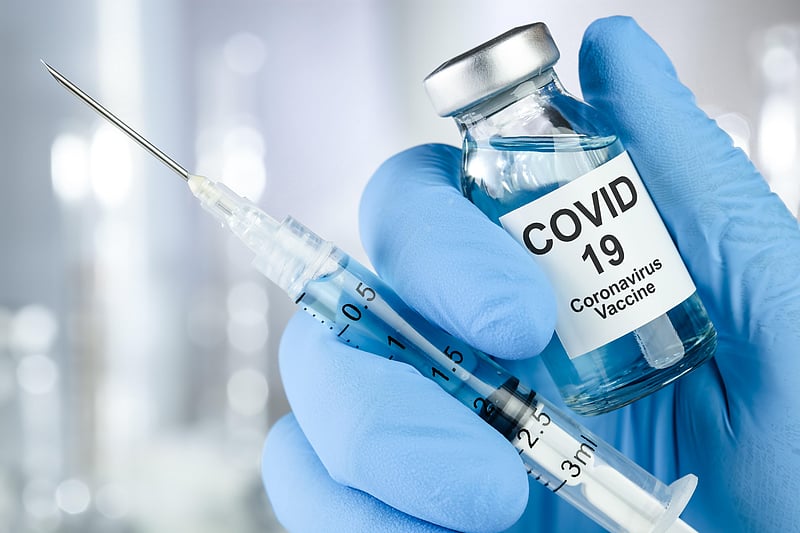Get Healthy!

- Cara Murez
- Posted March 9, 2023
Strong Side Effects From Your COVID Shot? That Could Be a Good Thing
Side effects from a COVID-19 vaccination might have made you feel poorly for a day or two, but that may have come with an extra benefit.
A new study of health care workers finds a link between stronger side effects and a longer-lasting vaccine.
In addition, those who had a COVID-19 infection prior to their vaccination also had a more powerful immune response, according to researchers from UConn Health in Farmington.
"Prior infection with COVID meant you were more likely to have a sustained immune response. It definitely set your immune system to respond in a more vigorous way to the vaccination,"study co-author Dr. Kevin Dieckhaus said in a university news release. He's chief of infectious diseases at UConn School of Medicine.
To study this, researchers recruited 296 nurses, doctor and other hospital workers. That included 46 who had already been infected with COVID.
Participants were vaccinated with either the Pfizer or the Moderna mRNA vaccines. The study had originally included health care workers vaccinated with Johnson & Johnson's vaccine, but not enough chose that option to make the results statistically significant.
The health care workers had their blood tested for neutralizing antibodies at two months post-vaccination, then at five months and again at nine months.
These neutralizing antibodies attack the parts of the virus important for infection, the study noted, while other antibodies might react to parts of the virus but be ineffective at stopping it from infecting other cells.
Researchers found the vaccines elicited a strong neutralizing antibody response in the first few months from people who had never been infected with COVID. That level of neutralizing antibodies dropped off steeply by nine months.
But they found that the neutralizing antibody response was higher initially in those who had already experienced a COVID infection. It also didn't drop off as steeply over time.
For both groups, getting a fever, aches or a sore arm after vaccination predicted a stronger, longer lasting neutralizing antibody response, according to the study.
In middle-aged people, the antibody response from the vaccines is relatively strong but short-lived.
The findings were published recently in the journal Vaccines.
Researchers are continuing the study, tracking antibody levels in participants who received boosters and recording whether they have contracted COVID since vaccination.
More information
The U.S. Centers for Disease Control and Prevention has more on COVID-19 vaccination.
SOURCE: UConn Health, news release, March 6, 2023


